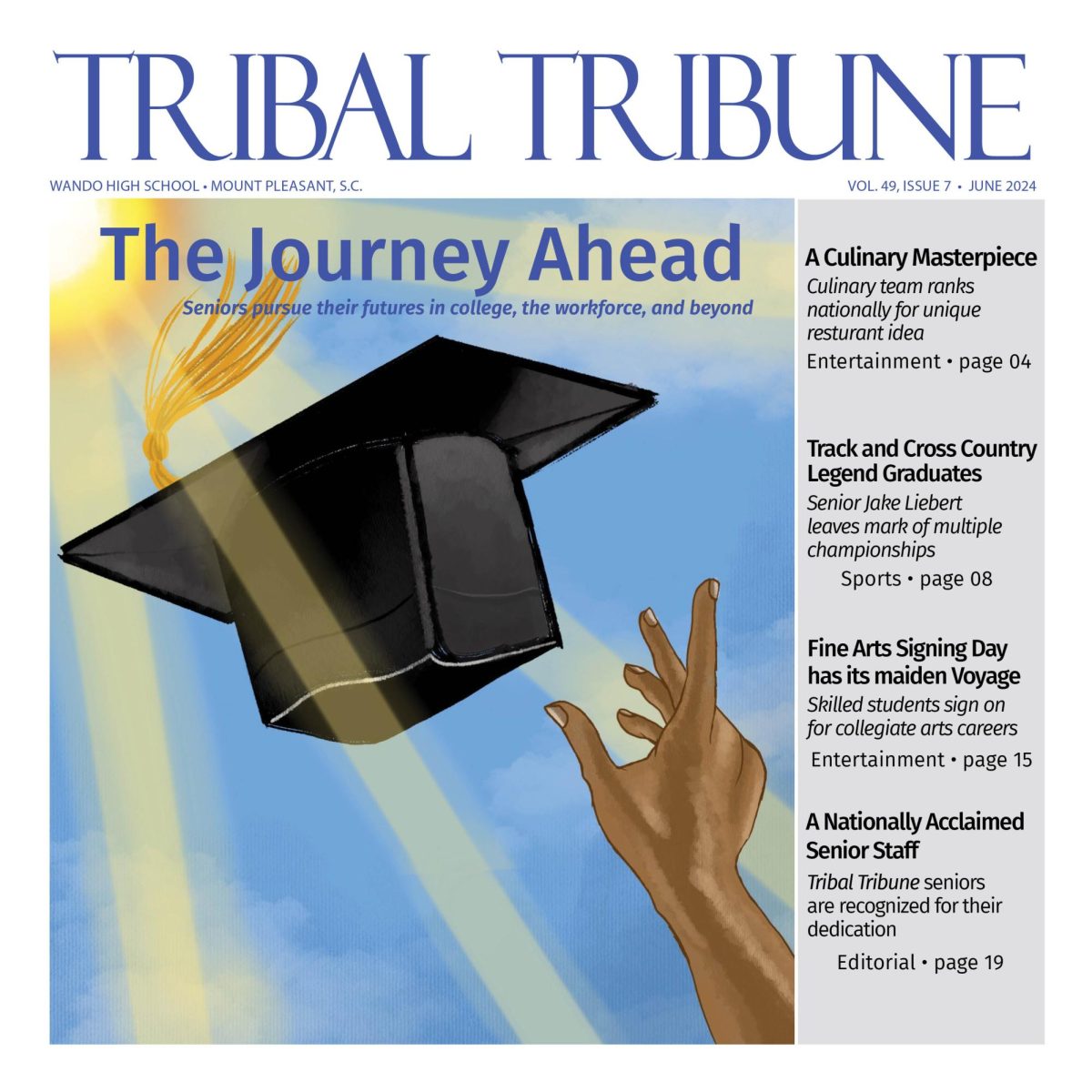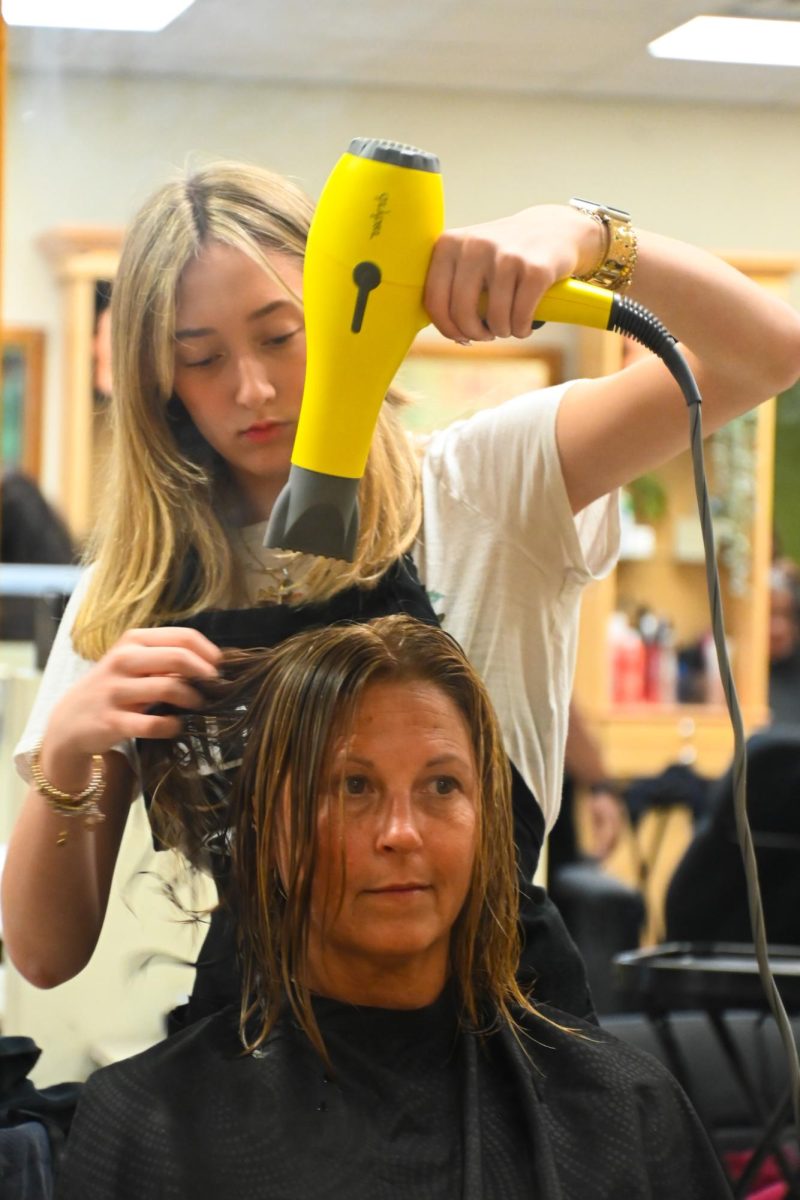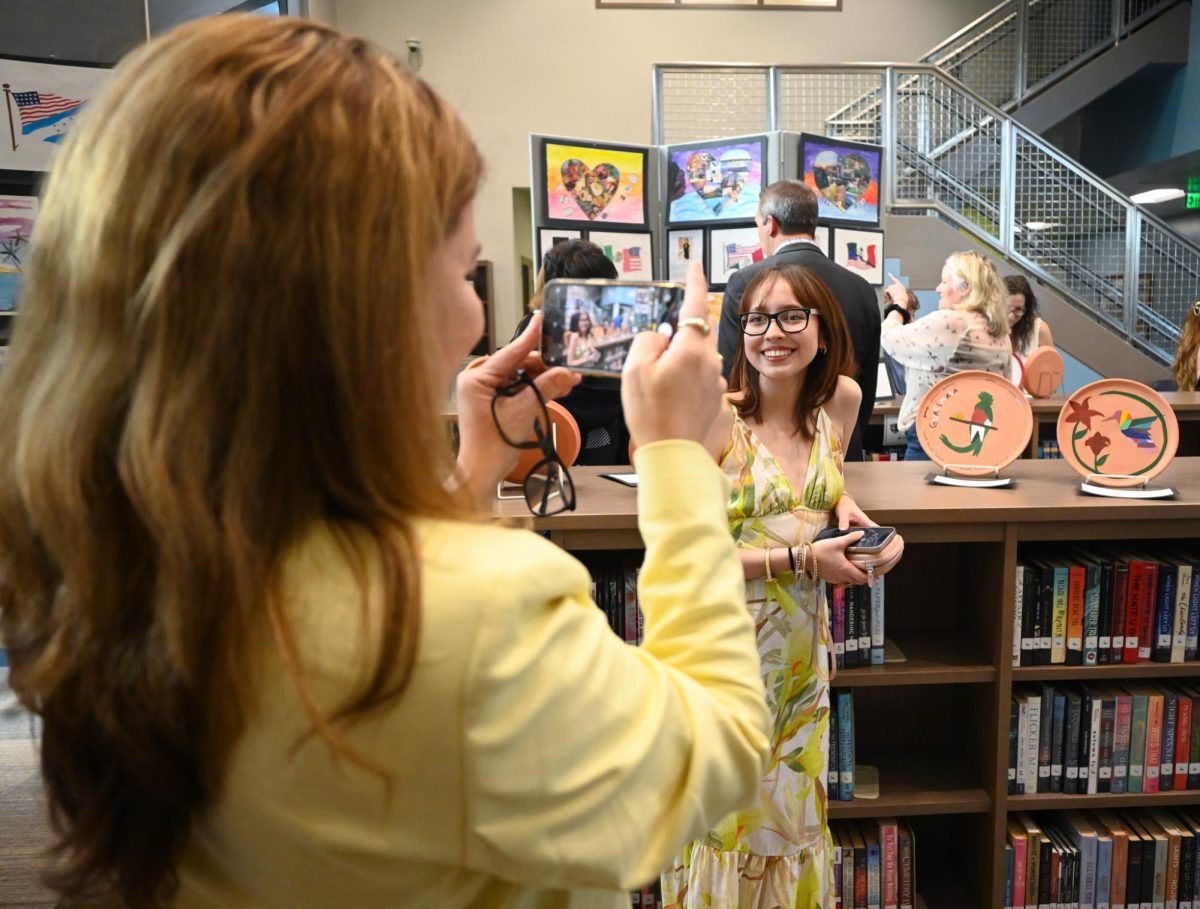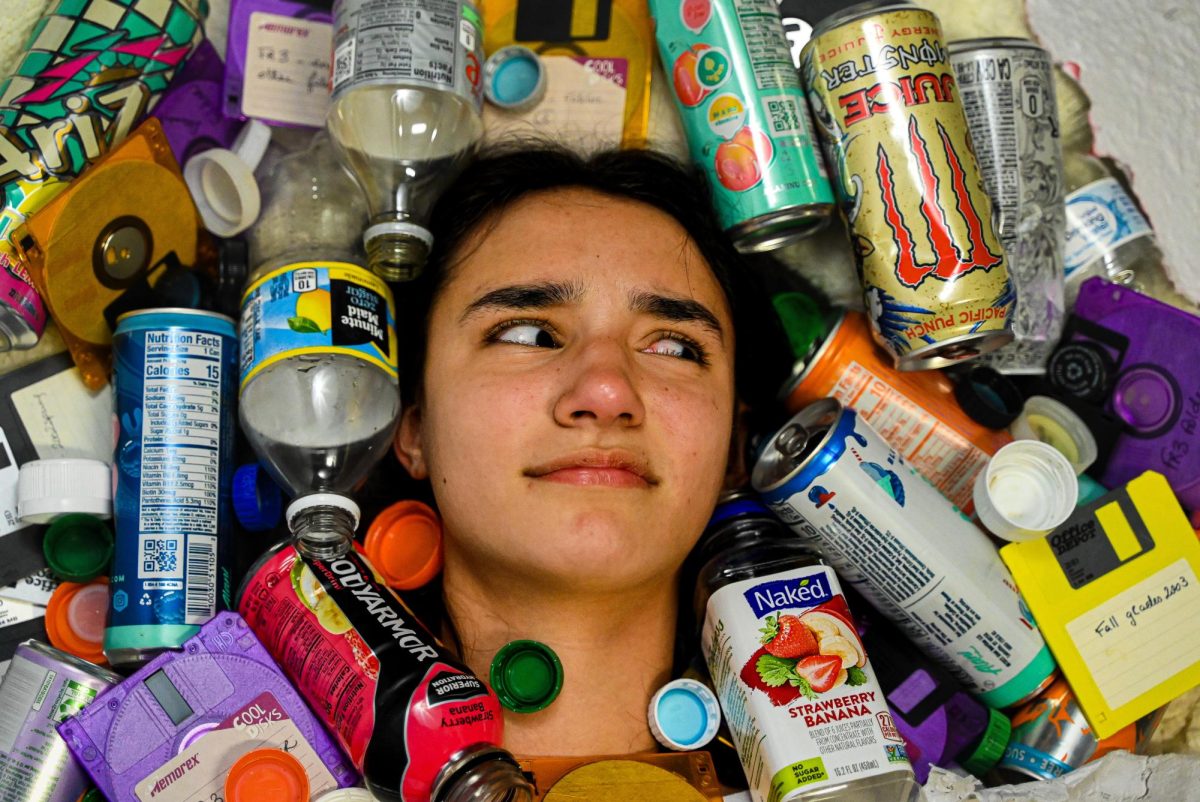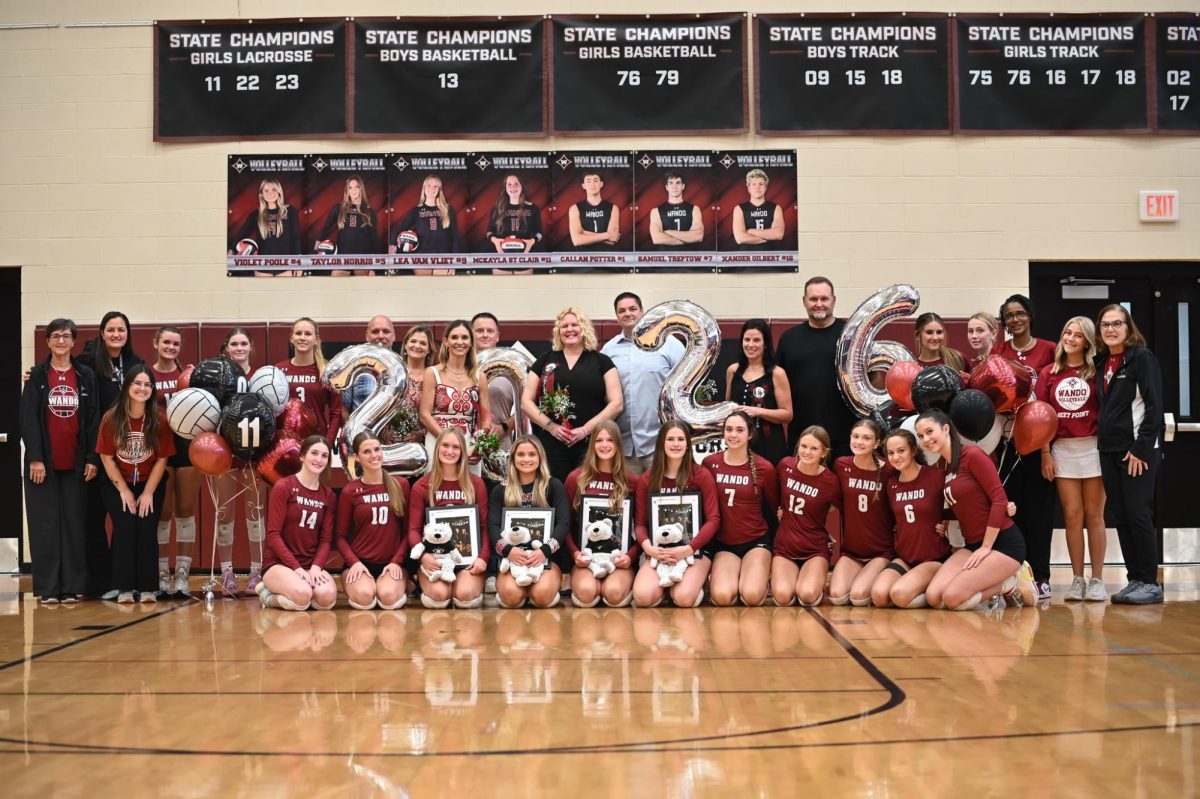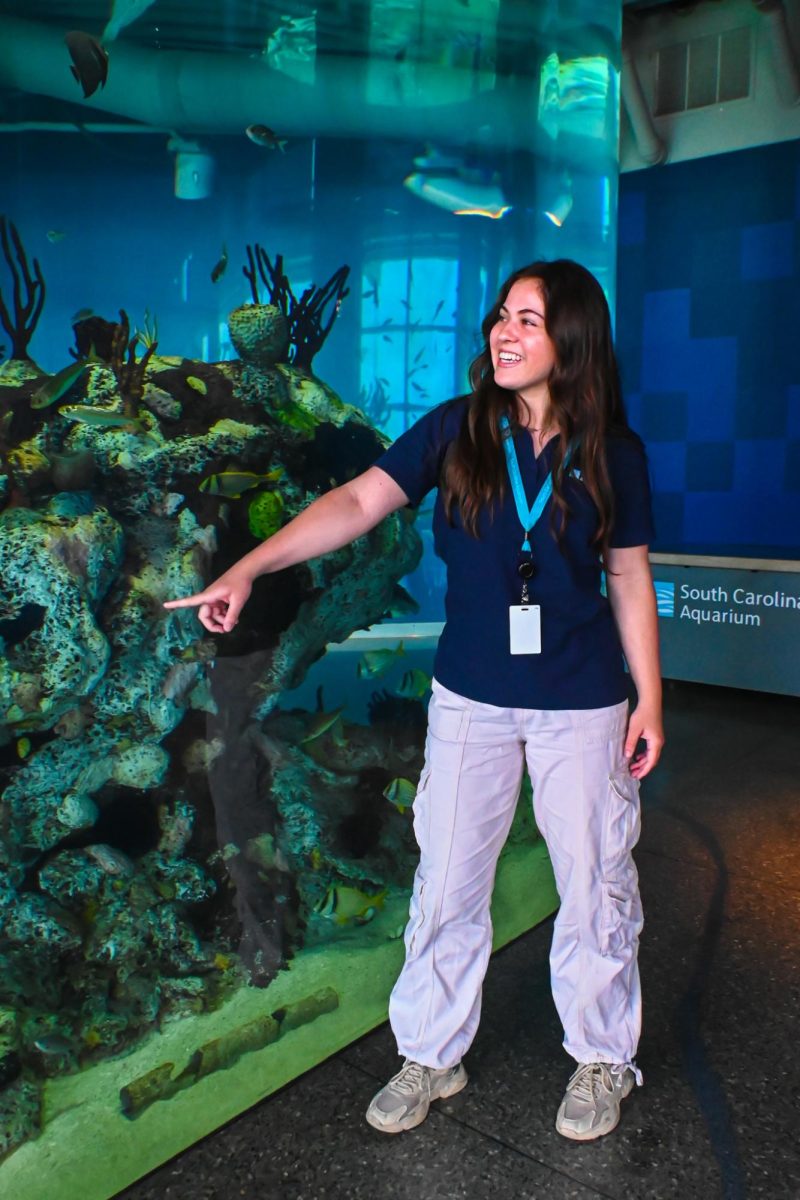The boarding doors open. Passengers flood off the plane and onto the jet bridge. They grab their bags from the carousel and exit the airport. At the same time, a barrage of travelers disembark Royal Caribbean’s Vision of the Seas, and flood the streets of downtown Charleston.
They are just some of the 7 million travelers that visit Charleston each year. This is a whopping 175 times the population of the peninsula. Charleston-based travel advisor Matt Walker, from Caribbean Recess, has identified the busiest times of travel in the Charleston area.
“Spring Break is number one and the first two weeks of June would be number two. Bookings are through the roof. It’s just such a consolidated time. This year for example Easter was so early on the calendar, almost everyone in the country had spring break last week. It just opens the floodgates,” Walker said.
Walker explains that the majority of tourists over Spring Break are families with young children.
“If you are not a spring-breaking family, [Spring Break] was not the time to travel. You only traveled [if] you just had children that are school-aged or you are a teacher, that was the time that you had to go. Likewise, when people get out of school, those first two weeks of June are just super popular weeks to travel,” Walker said.
Junior Annabelle Waters is a host at Mount Pleasant’s popular restaurant, Mellow Mushroom. Working over Spring Break, Waters first hand experienced the chaos that this season brought.
“It gets pretty stressful because it gets busy and a lot of big groups come in and it’s hard to seat the big groups and all the servers get stressed out so then I’m stressed out,” Waters said.
In the midst of one of the Lowcountry’s busiest tourist weeks, Waters became overwhelmed with the sudden flood of people.
“It’s harder to find a table for everyone especially when the servers are small because a few of them won’t take them… It definitely makes [us] more money but it’s a lot of stress on all the workers,” Waters said.
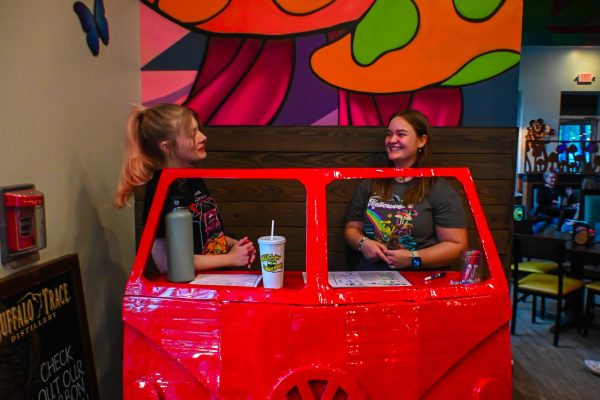
to combat the restauraunt chaos at Mellow Mushroom. “I love working
here, the manement is amazing and my coworkers makes everyday so
fun,” Waters said. (Livi Ralston)
While many local businesses such as Mellow Mushroom are designed to handle local crowds, businesses such as the South Carolina Aquarium depend on tourism. Senior Ava Casey is a mentor for the aquarium’s high school internship program.
“The aquarium draws many visitors from all over which brings in revenue to support the aquarium’s education efforts, conservation events, research, and community involvement. We also need to keep up with the diets of our vast range of animals which is majorly supported by tourism,” Casey said.
In times like spring break and the summer, the aquarium often reaches maximum capacity of visitors. This can put a burden on the company’s workforce.
“Tourism can [cause] a stressful and chaotic environment. All our staff must be extra attentive to animals and alert on the floor. Animals can become anxious with large crowds and children can get separated from their families,” Casey said.
While Charleston becomes filled with tourists, many locals take advantage of the convenience of Spring Break and summer and travel around the globe.
“People from Charleston love both Europe and the Caribbean. It’s generally more accessible from the East Coast. Between laying over in Charlotte and Miami you can get to anywhere you want to go in the Caribbean[and] between Washington Dulles and NewYork you can get anywhere you want to go inEurope,” Walker said.
Despite the overflow of people, tourism is often vital to the economy. Small businesses thrive off of holiday-seeking travelers.
“In 2019, the world really complained about over-travel [and] overdominance of visitors in regions. In 2020 and 2021, when there was no one visiting…people stopped talking about over-tourism because they realized how vital it was to the local economy,” Walker said.
With this in mind, tourism has emerged to be a leading industry impacting our local economy. Local businesses survive off oftheir location in a tourist area.
“At the aquarium, we do our best to promote conservation behaviors and awareness in guests, so when we have more guests learning about how to conserve and protect our ecosystems, it benefits the biodiversity here in South Carolina. Tourism also keeps our staff engaged, interested, and on their
feet,” Casey said.





